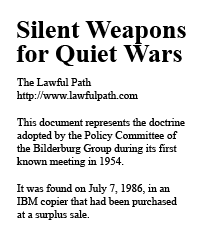Did a Supreme Court decision that financially rewarded unsecured creditors ahead of secured lenders undermine basic economic principles? Let’s ask Bob Rinear.
When word broke that the U. S. Supreme Court decided to allow Chrysler to be sold out of bankruptcy to a consortium of buyers led by Fiat S.p.A., major news sources hailed the ruling as a victory for the auto manufacturer and the Obama administration. It was generally perceived that a quick sale was better for all concerned, since the automaker was said to be losing $100 million a day.
However, many astute observers believe the Court decision is both shortsighted and dangerous because Chrysler’s so-called “victory” could easily be construed as a deadly torpedo that can cause severe harm to the fundamental economic structure of the U.S.
Bob Rinear, founder of InvestYourself and publisher of the Financial Intelligence Report, will discuss how this engineered “fire sale” that abrogated the rights of Chrysler’s secured lenders (bondholders) is likely to have negative repercussions on the American way of life. The legal precedent is very disturbing, especially since the Feds appear to be advocating a similar proposal for General Motors.
“This [decision to dismiss the rights of Chrysler’s secured lenders] is an outrage at best and a gigantic, precedent-setting disaster at worst,” says Rinear. “Going forward, how can any lender feel secure that the terms of any new ‘deal’ will be honored?”
What are the long-term implication of such a precedent? Rinear explains, “As more and more companies search for financing, they will be facing brick walls as lenders have to make value decisions concerning whether Uncle Sam will put his nose in the deal and possibly force out these secured lenders. Once again we see economic policy being created ‘on the fly’ with no true thought to the ramifications.”





![[Most Recent Exchange Rate from www.kitco.com]](http://www.weblinks247.com/exrate/exr24_eu_en_2.gif)
